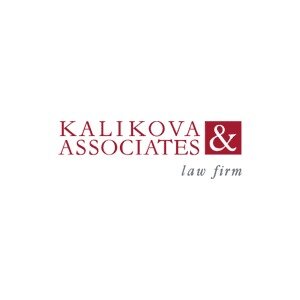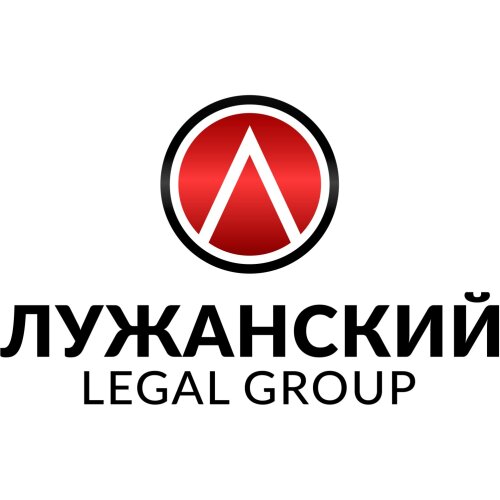Best Structured Finance Lawyers in Kyrgyzstan
Share your needs with us, get contacted by law firms.
Free. Takes 2 min.
Or refine your search by selecting a city:
List of the best lawyers in Kyrgyzstan
About Structured Finance Law in Kyrgyzstan
Structured finance refers to complex financial instruments and strategies used to manage risk, raise capital, and maximize liquidity for corporations, financial institutions, and public sector entities. In Kyrgyzstan, structured finance can include asset-backed securities, syndicated loans, securitizations, and other off-balance-sheet mechanisms. These are often used to fund large infrastructure projects, trade finance, or refinance existing obligations. As the financial sector in Kyrgyzstan continues to develop, particularly in banking, investments, and public-private partnerships, an understanding of structured finance is increasingly important for both local and foreign market participants.
Why You May Need a Lawyer
Structured finance transactions are typically complex, with many legal, regulatory, and tax implications. You may need a lawyer if you are:
- Structuring or negotiating large-scale financial transactions
- Seeking cross-border finance or working with foreign investors
- Issuing or investing in asset-backed securities or other structured finance products
- Engaging in public-private partnership (PPP) projects or infrastructure finance
- Ensuring compliance with local and international financial laws and regulations
- Advising corporations on risk management and off-balance-sheet solutions
- Dealing with disputes, defaults, or enforcement in structured finance deals
Lawyers with expertise in structured finance can help you understand local requirements, draft and negotiate documentation, mitigate risks, and successfully interact with regulators and counterparties.
Local Laws Overview
Kyrgyzstan’s legal framework for structured finance is evolving and is influenced by both local statutes and international best practices. Key aspects to consider include:
- Banking and Financial Laws: Primary regulations come from the Law on Banks and Banking Activities, as well as guidelines from the National Bank of the Kyrgyz Republic (NBKR), which oversees all banking and non-banking financial institutions.
- Securities Law: The Law on Securities Market regulates issuance, trading, and disclosure requirements relevant to asset-backed securities and other financial products.
- Collateral and Secured Transactions: The Civil Code and Law on Pledge define rules for securing financing through collateral, which is essential in structuring asset-backed deals.
- Foreign Investment and Currency Control: Laws encourage foreign investment, and cross-border structured finance must comply with currency regulations and transaction approvals handled by the NBKR and Ministry of Economy and Commerce.
- Tax Implications: Structured finance transactions may be affected by corporate income tax, value-added tax, and withholding tax, making local tax law compliance crucial.
- Public-Private Partnerships: The Law on Public-Private Partnerships provides the legal basis for financing joint government-private sector projects.
Regulatory procedures, documentation standards, and disclosure requirements are still developing. It is advisable to work with a legal expert to address gaps or discrepancies in local practice.
Frequently Asked Questions
What is structured finance, and how is it used in Kyrgyzstan?
Structured finance involves creating tailored financial solutions that often use collateral and pooling of assets to raise funding or manage risks. In Kyrgyzstan, it is used for large projects, business expansions, and investments requiring significant capital.
Who regulates structured finance products in Kyrgyzstan?
The National Bank of the Kyrgyz Republic regulates the financial sector, and the State Service for Regulation and Supervision of Financial Markets supervises the securities market. These authorities ensure compliance with financial, anti-money laundering, and reporting standards.
Can foreign investors participate in structured finance transactions in Kyrgyzstan?
Yes, foreign investors are encouraged to participate, but they must comply with local laws on currency exchange, registration, and sometimes obtain approvals for large transactions.
What are asset-backed securities, and are they available in Kyrgyzstan?
Asset-backed securities are financial instruments backed by pools of assets, such as loans or receivables. While the market is developing, such instruments are becoming more prevalent as financial infrastructure matures.
What documents are typically needed for a structured finance deal?
Key documents include financing agreements, security agreements, offering memoranda, legal opinions, and disclosure documents. Exact requirements depend on the transaction type.
Are there currency controls or restrictions on cross-border payments?
Kyrgyzstan has relatively liberal currency controls, but large or complex transactions may require notification or approval from the National Bank and observance of anti-money laundering requirements.
Does Kyrgyz law protect the interests of investors and creditors?
Yes, legal provisions protect investors and creditors, especially regarding collateral and priority claims, but effective enforcement relies on proper documentation and registration.
How is dispute resolution handled in structured finance transactions?
Disputes can be resolved in local courts or, if agreed, through international arbitration. The legal system recognizes arbitration clauses and supports enforcement of arbitral awards.
Are there tax incentives for structured finance projects?
Some structured finance arrangements, especially in priority sectors like infrastructure and renewable energy, may benefit from tax incentives. Consult with a lawyer for specific programs and eligibility.
How can I ensure compliance with Kyrgyzstan’s structured finance regulations?
Work with a qualified lawyer to analyze your transaction, prepare compliant documentation, liaise with regulators, and stay updated on evolving legal requirements.
Additional Resources
If you need more information or support, consider the following resources:
- National Bank of the Kyrgyz Republic (NBKR): The main regulatory body for the banking and financial sector.
- State Service for Regulation and Supervision of Financial Markets of the Kyrgyz Republic: Supervises financial and securities markets.
- Ministry of Economy and Commerce of the Kyrgyz Republic: Handles investment policies and licensing.
- Chamber of Commerce and Industry of the Kyrgyz Republic: Provides information and networking for investors and businesses.
- Kyrgyz Bar Association: A directory of licensed lawyers and legal experts in finance.
Next Steps
If you are considering a structured finance transaction or need advice:
- Identify your specific objectives and gather all relevant documents and details about your project or financing needs.
- Consult with a specialized lawyer who understands Kyrgyzstan’s financial regulations and international standards.
- Discuss your options, potential risks, and regulatory requirements with your lawyer.
- Prepare and review all documentation carefully, ensuring compliance with local laws.
- If needed, liaise with relevant authorities for clearances, registration, and ongoing compliance.
Seeking legal advice early can save time, reduce risks, and increase the likelihood of a successful structured finance transaction in Kyrgyzstan.
Lawzana helps you find the best lawyers and law firms in Kyrgyzstan through a curated and pre-screened list of qualified legal professionals. Our platform offers rankings and detailed profiles of attorneys and law firms, allowing you to compare based on practice areas, including Structured Finance, experience, and client feedback.
Each profile includes a description of the firm's areas of practice, client reviews, team members and partners, year of establishment, spoken languages, office locations, contact information, social media presence, and any published articles or resources. Most firms on our platform speak English and are experienced in both local and international legal matters.
Get a quote from top-rated law firms in Kyrgyzstan — quickly, securely, and without unnecessary hassle.
Disclaimer:
The information provided on this page is for general informational purposes only and does not constitute legal advice. While we strive to ensure the accuracy and relevance of the content, legal information may change over time, and interpretations of the law can vary. You should always consult with a qualified legal professional for advice specific to your situation.
We disclaim all liability for actions taken or not taken based on the content of this page. If you believe any information is incorrect or outdated, please contact us, and we will review and update it where appropriate.
Browse structured finance law firms by city in Kyrgyzstan
Refine your search by selecting a city.











